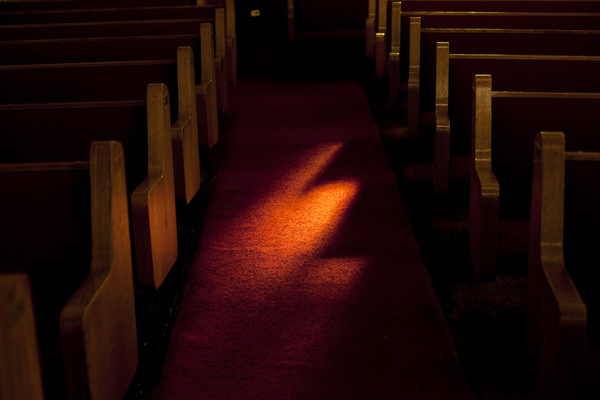Most people associate PTSD with veterans returning from war. They don’t see PTSD as an issue that affects babies, children, teenagers, young adults, professionals, in fact, anyone of any age, background, race, or from any demographic region can be affected by PTSD.
PTSD is far more common than we think.
If you attend a rural church of 100 people, at least 5 adults and adolescents in your small congregation suffer from PTSD. If you attend a church of 1,000 in an urban area like Atlanta or Chicago, approximately 250 adults and adolescents in your congregation are struggling with PTSD.
According to ptsd.ne.gov, approximately 4% of U.S. adults and 5% of adolescents have PTSD in the course of a year. This statistic does not take into account younger children who also often suffer from PTSD, and much higher percentages in larger cities.
Unfortunately, rates of PTSD in urban areas are higher than for soldiers returning from Afghanistan and Iraq (from 11-20%).
PTSD is primarily a war-related condition, right? Wrong.
The most common cause of PTSD among the general population is car accidents. In fact, up to 30% of people who experience car accidents will go on to develop symptoms of PTSD.
PTSD can be caused by any event that causes paralyzing fear and overwhelms the brain’s ability to cope. PTSD can be caused by
- natural disasters
- technological disasters
- pre-birth child loss
- adoption (the child’s or mother’s experience)
- childbirth
- preverbal childhood medical trauma
- childhood medical trauma
- adult medical trauma
- neglect and abandonment
- domestic violence
- sexual abuse
- secondary trauma (first responders, social workers, spouses)
- caregiving
- grief
- bullying
PTSD is a brain illness rooted in chemical and biological causes that typically require trauma-specific treatment.
Unfortunately, the church often treats mental illness as a spiritual problem. However the brain is an organ, and its function is rooted in the same created biological and chemical processes as the rest of our organs. Diabetics take insulin and other medications for their diabetes. People go for physical therapy for rehabilitation following strokes and brain injuries. Those living with PTSD also require therapy and rehabilitation. That need does not connote spiritual weakness. Unfortunately, “guilting” and counsel people away from needed PTSD treatment is too often the position of the church.
People who suffer from PTSD need compassion, patience, understanding from the church, and friends willing to listen.
Christians who suffer from PTSD feel guilty.
They feel unfixable.
They feel alienated.
They often suffer with symptoms like depression, addictions, obsessive-compulsive disorder, extreme anxiety, hyper vigilance, and other coping mechanisms that have helped them navigate life. These coping mechanisms begin to fail as the years pass.
People with PTSD find it enormously difficult to move past their PTSD symptoms unless they find effective trauma treatment, which the church often minimalizes or even demeans.
The church needs to provide greater understanding of and resources for those with mental illnesses like PTSD.
Mental illness is brain illness and deserves focus in the church as a stewardship issue–stewardship of body, soul, and spirit.
Additional information is available in our FREE ebook, “The Truth about Trauma,” which can be downloaded from the pages of this blog.
For more information and to inquire about training your church on biblical foundations in mental illness, contact Kristen Kansiewicz, author of “On Edge: Mental Illness in the Christian Context.”

Great information here, and a very informative post, as always. But as a full-time lay staff person in a large congregation, I’m very concerned by your use of the descriptor “Christian” in this context. Mainline, progressive denominations (including the one that employs me, ELCA Lutheran) do not have this backward and damaging attitude toward mental illnesses. Evangelical/fundamental denominations certainly do, however, and they are, very sadly, the ones with the shrill, loud voices that too often get mistaken for Christians as a whole. We main liners (I could say reasonable Christians) get a bad rap undeservedly. It is not Christianity that is at fault here; it’s the extremely narrow and hurtful interpretation by evangelicals that is doing the damage.
It’s a distinction I feel compelled to make over and over again, and it’s why I am hesitant to identify as a Christian. Evangelicals have hurt too many people who are already hurting from struggles with mental illness.
-Amy at http://www.momgoeson.wordpress.com
Thank you for making this distinction. We certainly do find greater ignorance and lack of attention to mental illness among more conservative churches. We are heartened by movements such as The Gathering for Mental Health in the Church at Saddleback and other simmilar efforts. However, we consult in a wide variety of settings and often find a lack of awareness of PTSD in mainline denominations as well. I do agree with your overall observations and sharing them.
Lack of awareness, certainly. But I’m thankful that most mainline denominations have compassion and a more contemporary understanding of mental illness in general.